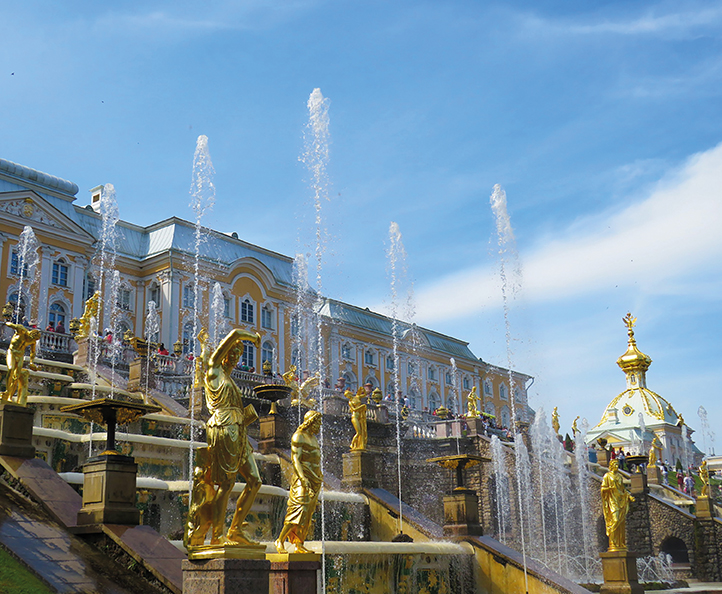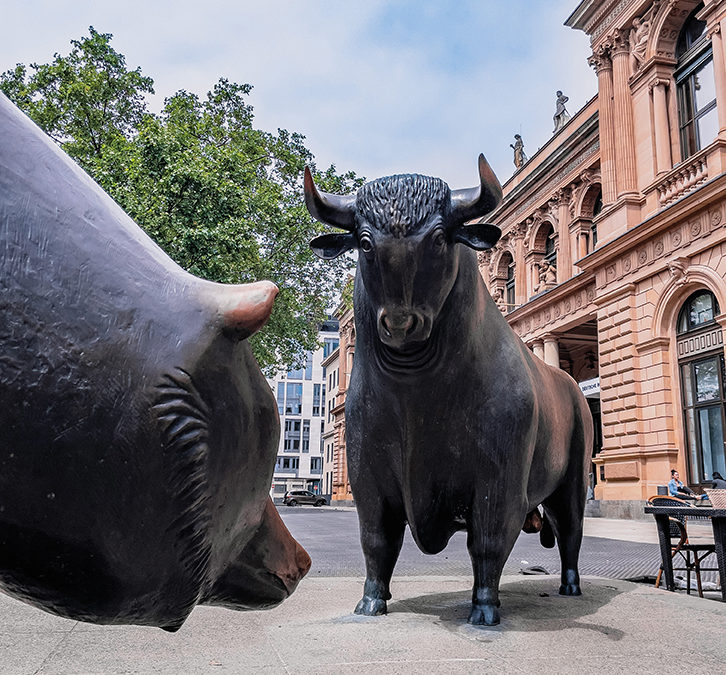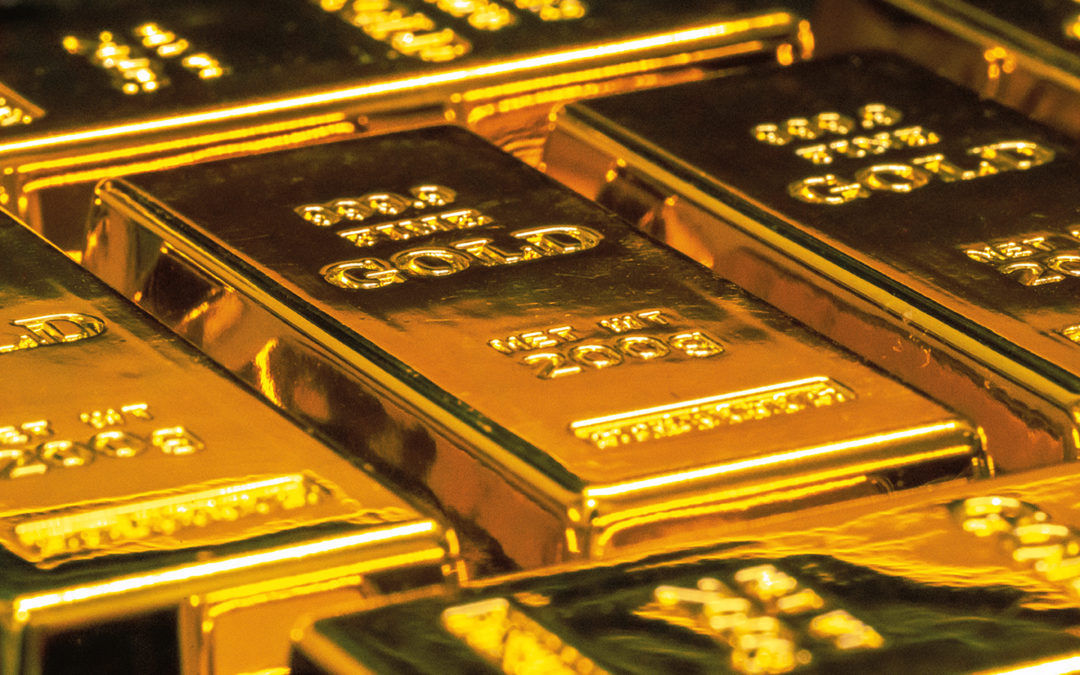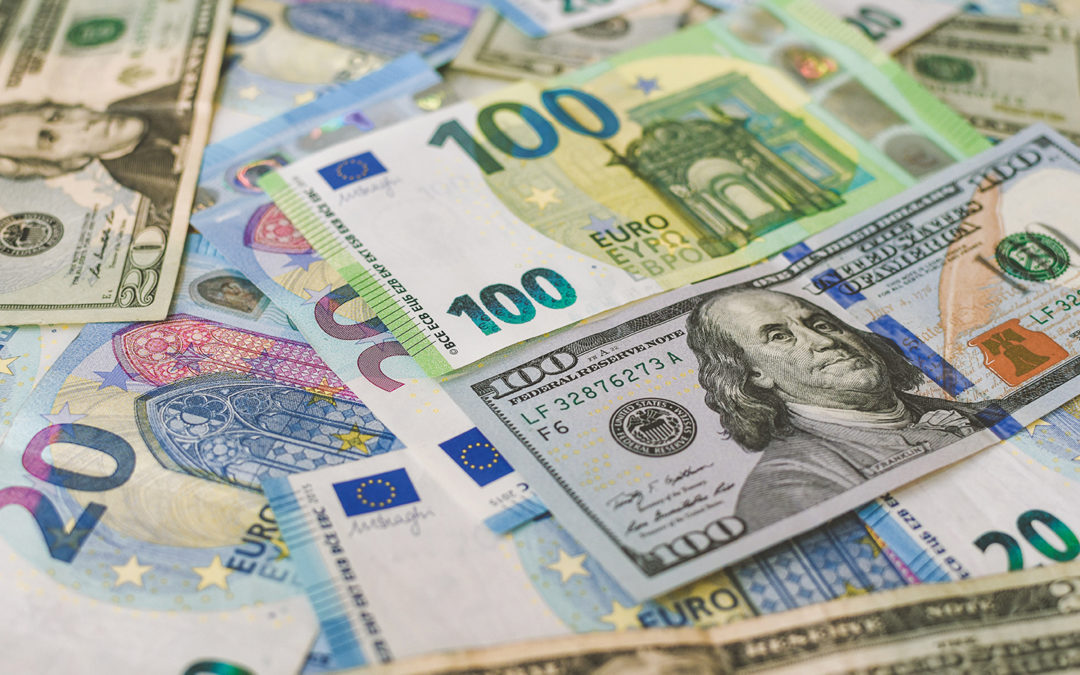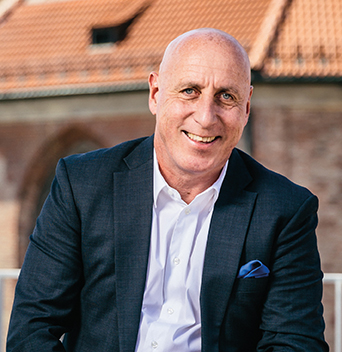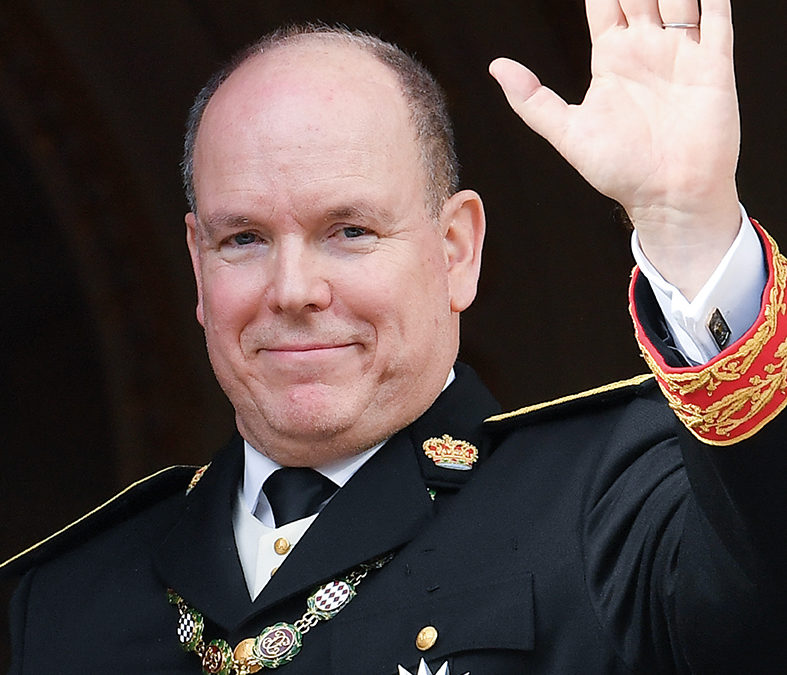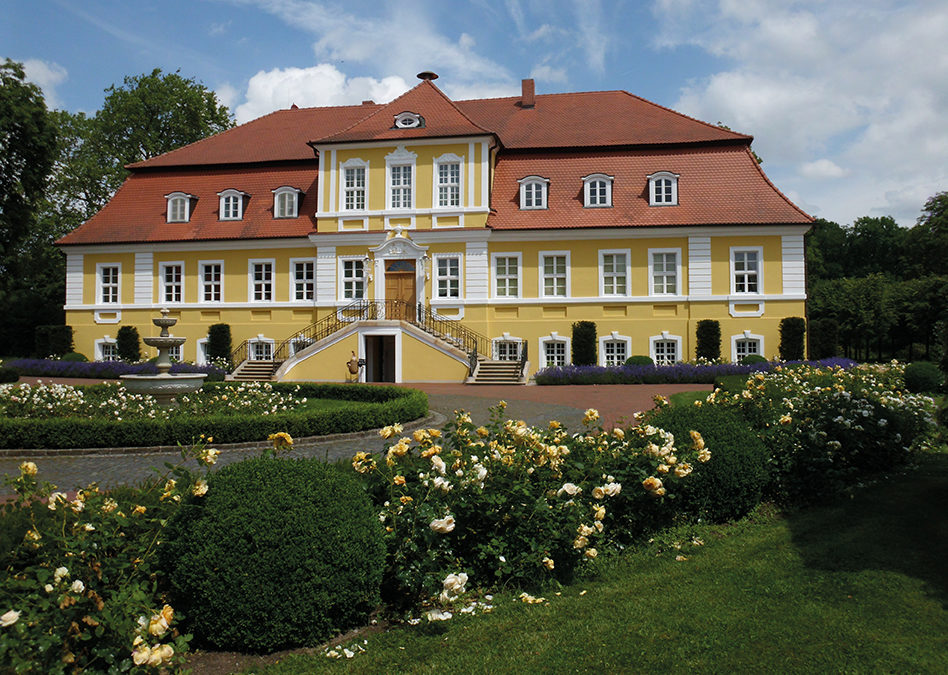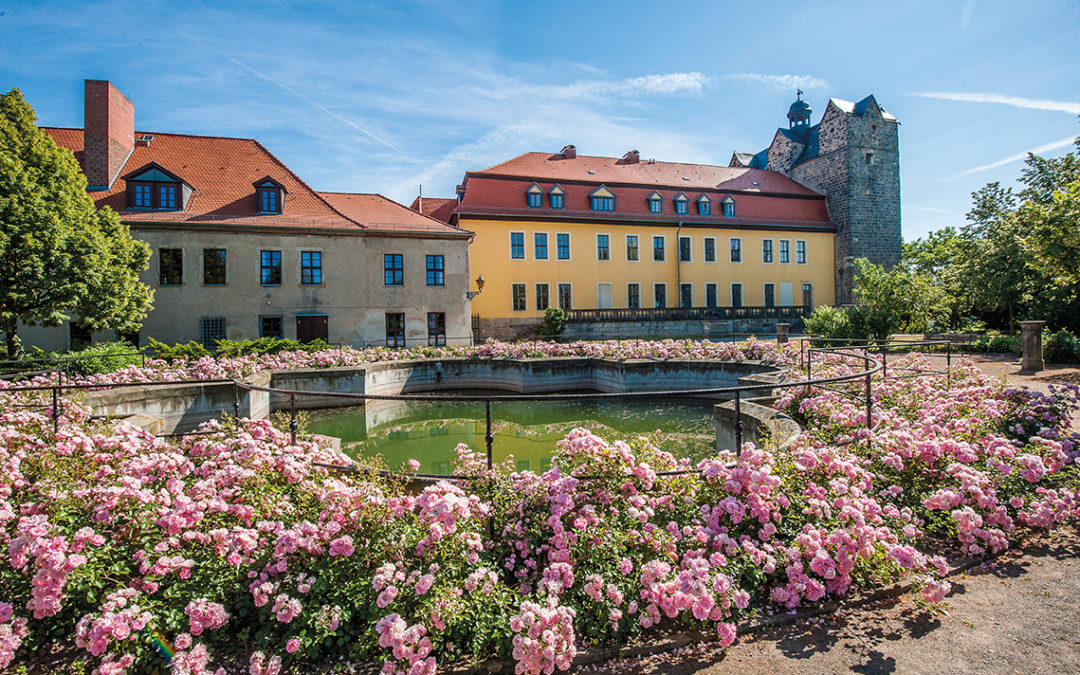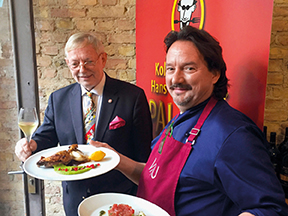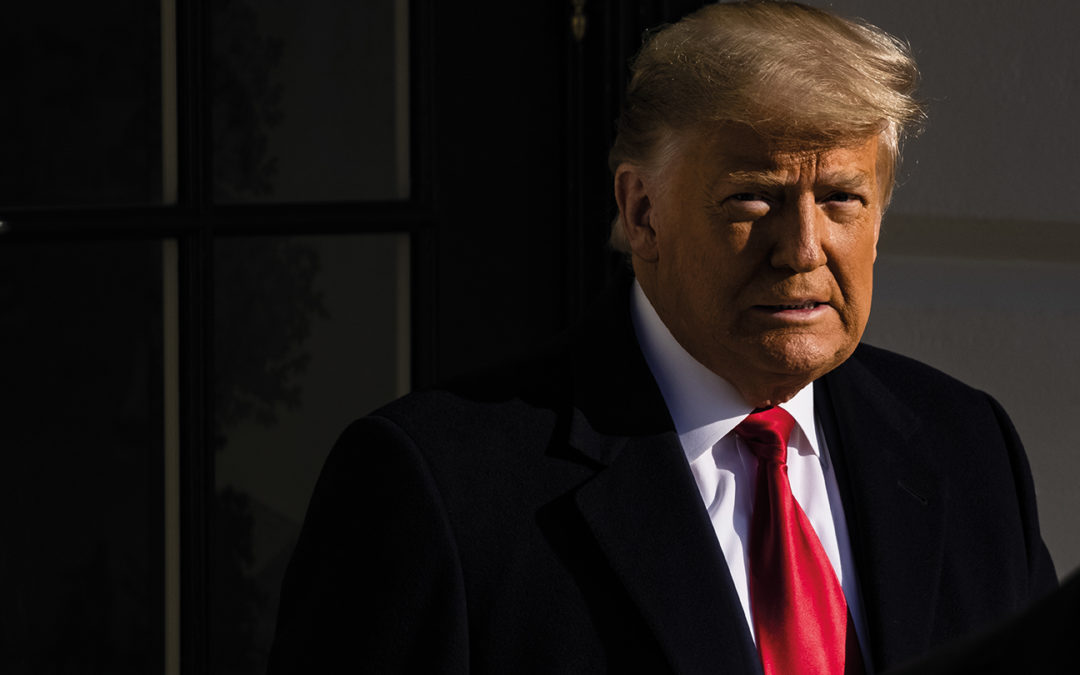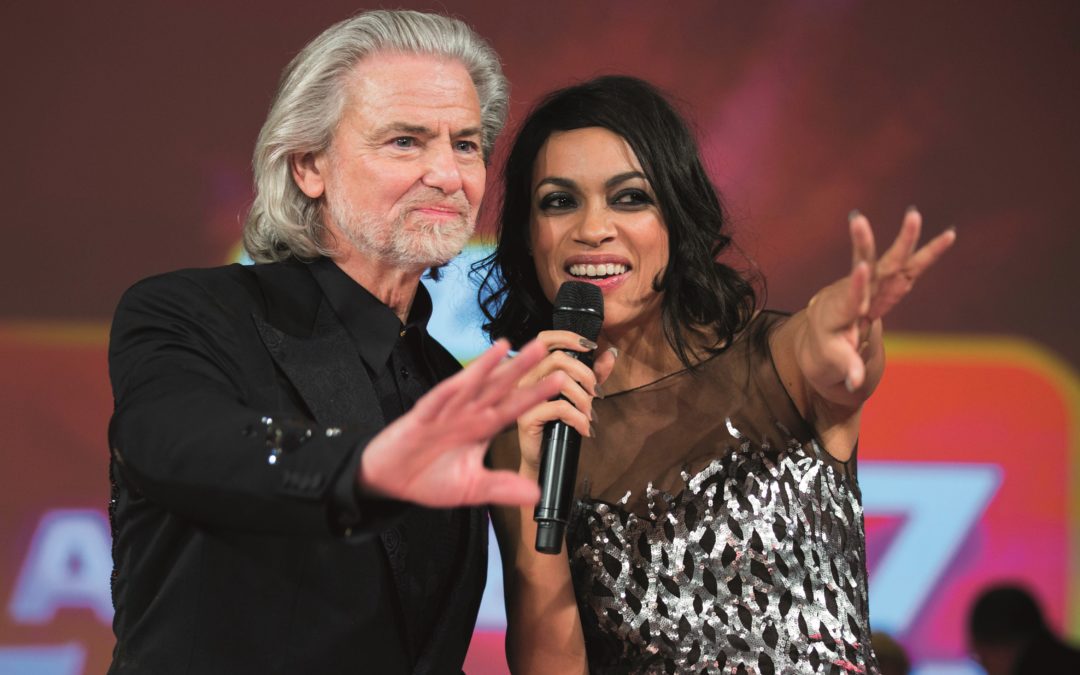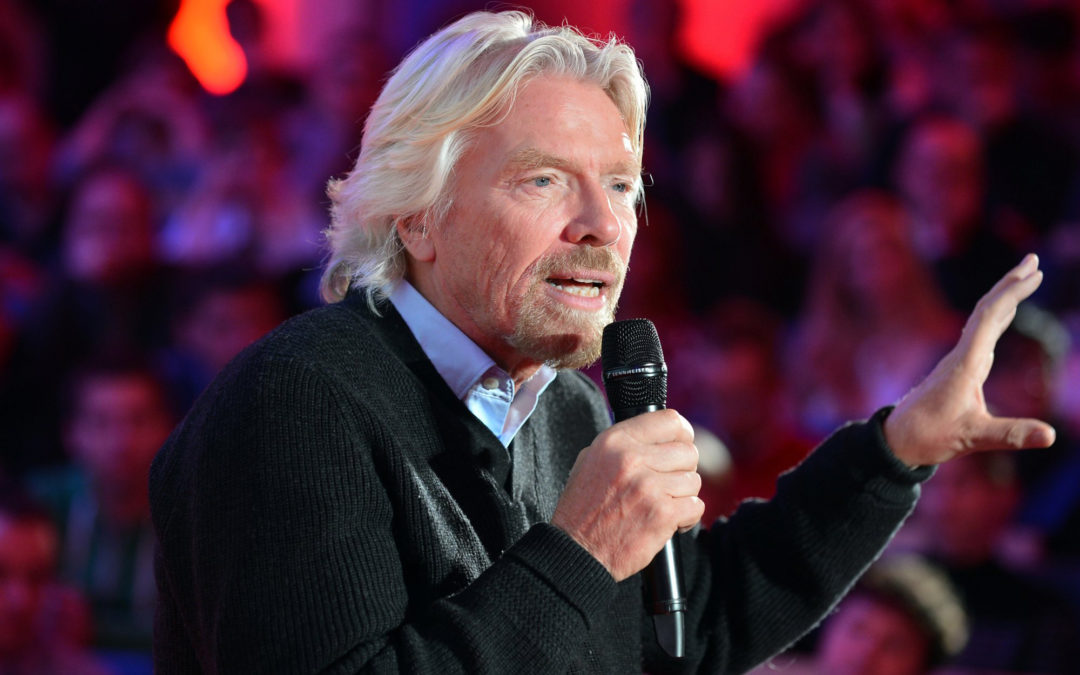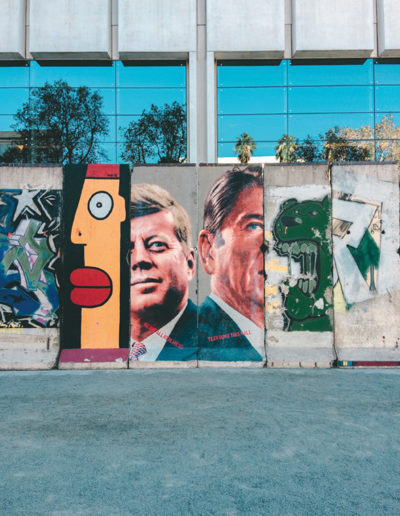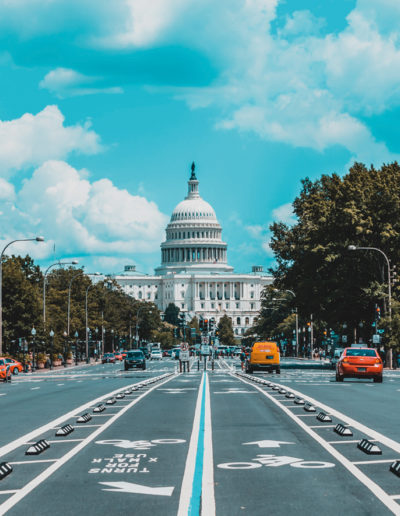binds the people of both countries together. Can you say when this friendship began? Yes, to the day. It was June 24th, 1948. The western part of Berlin was besieged by the Red Army. Stalin wanted to cut off Germany‘s path to democracy. The USA and England actually managed to supply the Berliners with food, oil, coal and industrial goods by air for almost eleven months, until Moscow gave up on May 12th, 1949
This airlift was understood by Germans as a sign of genuine sacrifice and filled hearts with gratitude. I grew up in free West Berlin in the 1960s and have felt this gratitude for as long as I can remember. I went to school near the American headquarters. When the tanks with the white star appeared, we waved and the GIs waved back. We lived in the flight path of Tempelhof, the only airport in the walled city. When a Pan Am Boeing appeared low over our roof, the windows rattled and it was really loud. But my father just smiled and said, „As long as they fly, we‘re free.“
At the end of the 60s, the mood changed, not among the older generation, but among the younger generation. The student movement demanded more freedom, but it was interspersed with well-organised communist groups that set the tone. They made the struggle against „US imperialism“ and „US capitalism“ the great goal of the movement. They worshipped Mao Tse-Tung, many of them even Lenin, and they shouted „Ho-Ho-Ho-Chi-Minh“ to side with the communist revolutionaries in Vietnam. The fact that the Soviet Union oppressed the whole of Eastern Europe and invaded Prague in 1968 did not interest them, nor did the Solidarnosc freedom struggle in Poland later on.
It is important to understand how strongly the various Marxist currents had an effect, by which an entire generation was gripped. This generation of 1968 then took to the streets regularly for 50 years only to demonstrate against US foreign policy. The young people, who had grown up in peace and prosperity under the protection of American defence, chanted „Yank pigs“, „Yank go home“ and „USA-SA-SS“, consciously bringing the American military close to Hitler‘s genocidal squadron. Many scholars have studied this phenomenon and asked whether the anti-American demonstrators were subconsciously trying to relativise the guilt of their own fathers.
The elitist representatives of this generation set out to change the Federal Republic of Germany in an anti-Western way as teachers, professors, journalists, civil servants, actors and politicians. They founded the new party „Die Grünen“ (The Greens), which from the beginning was more red than green, some even migrated into terror groups, like the „Rote Armee Fraktion“ (Red Army Faction). Others got involved in the peace movement of the 1980s, which in turn only rebelled against American missiles, but not against Soviet ones. Today‘s German Chancellor Olaf Scholz, who maintained particularly close and friendly contacts with the leadership of the GDR state party SED, was involved there as a Young Socialist functionary. As a result, American politicians were systematically criminalised, for example the 40th US President Ronald Reagan and his Secretary of State Alexander Haig. They could hardly visit Berlin because demonstrators turned the city into a single place of street fighting. Even the Bush administration‘s masterful and successful campaign for German unity in 1990 was ignored by the 1968 generation, which was now increasingly taking the lead in opinion in Germany. „No blood for oil“ was then the slogan in the first Iraq war, even though Germany was very dependent on oil. The terrorist attack on the World Trade Center on 11 September 2001 once again created solidarity. But this solidarity quickly faded and President Bush Jr., like his Republican predecessors, served as an ideal bogeyman, all the more so when he launched the second Iraq war.
With the reunification of Germany came an entire country through the GDR, whose inhabitants had been indoctrinated anti-American for more than 40 years. They had learned that the White House was home to the „class enemy“ who wanted to dominate and exploit the world. Their worldview complemented the socialist ideology that came out of the 1968s and increasingly gripped West Germany. Donald Trump, who was fought much more furiously in Germany than Nixon and Reagan had been, was then in 2017 only the welcome projection surface to confirm their own prejudices once again and for good. The mood was now downright hostile. And when in 2019, to mark the anniversary of the Airlift, a few of the famous sultana bombers that still existed wanted to land at the former Tempelhof Airport, the capital‘s government refused: there were „problems with the permit.“ A bronze figure of Ronald Reagan, which the American ambassador had given to the people of Berlin to place at the Brandenburg Gate, was also refused. Here, in 1987, Reagan had made the prophetic speech towards Moscow: „Mr. Gorbachev, tear down this wall…“ Instead, the bronze figure now stands a few hundred metres away on the roof terrace of the American Embassy. The Berlin government, which is made up of Social Democrats, Greens and the successors of the GDR SED, does not want it. Reagan had already been sufficiently honoured as an honorary citizen of the city, they said unkindly in justification. There is such a bronze Reagan in Budapest and in London in Grosvenor Square (Mayfair). He is not welcome in Berlin.
German policy has moved so far away from America, and America had already changed its orientation with Obama, Trump and Biden towards Asia. Then, at the end of February 2022, the new war in Europe came out of the blue. Russia invaded Ukraine. Suddenly we were looking again to NATO and above all to Washington. Necessity drives us back to the great friend. But it is fear that drives us now rather than the deep feeling of solidarity that arose in 1948 and that no longer exists today. I have always felt the German-American relationship to be close but difficult, like between a father and his son. The son imitates the father, but rebels and turns against him. The father takes note of it with irritation. The great dislike since 1968 was also probably the result of a great and unusual bond. One of the former US ambassadors in Berlin contradicted my father-son theory: „No, it‘s more like the relationship between the therapist and his patient.“ I had to laugh. Maybe that‘s one way to look at it.




